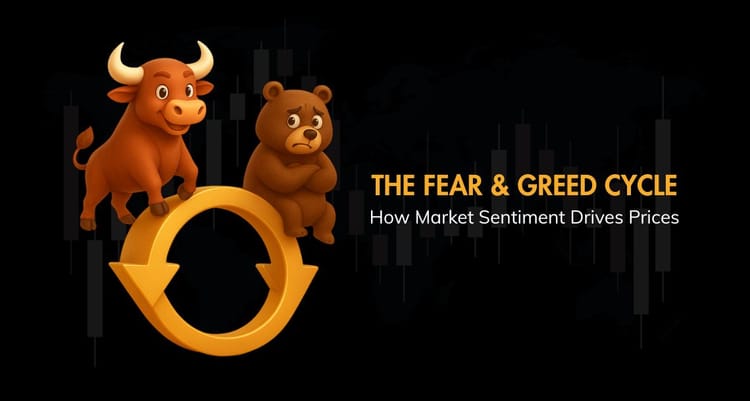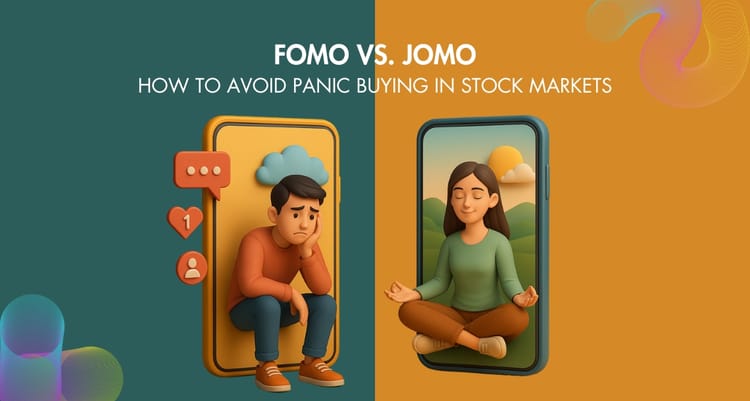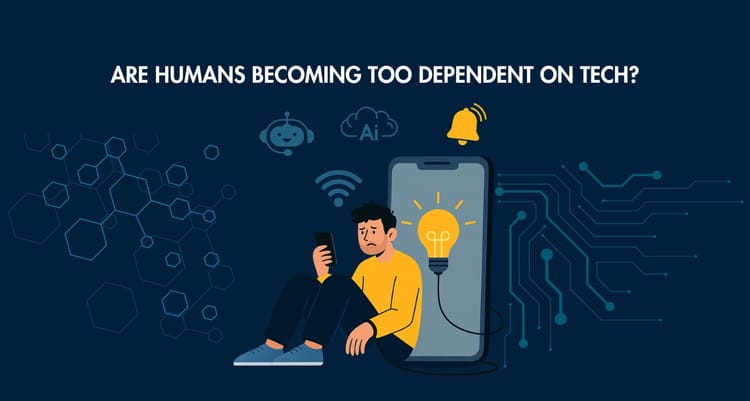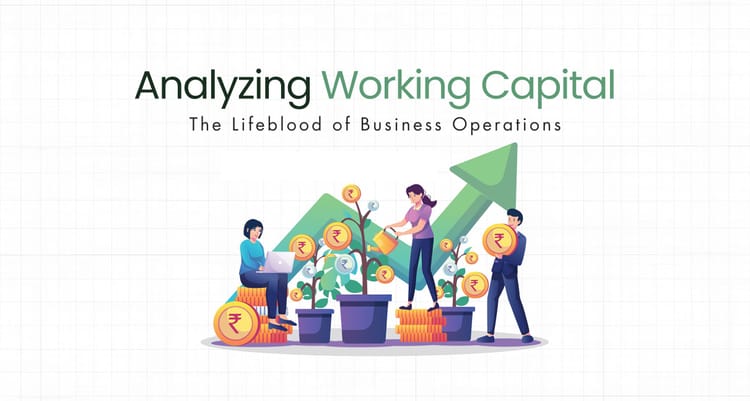Social Media: The Game - Changer for Retail Trading Trends in India

In recent years, India has witnessed a significant surge in retail trading, driven by the convergence of technology and social media. The democratization of investing has given rise to a new breed of investors who actively participate in the stock market through online platforms. One of the key driving forces behind this phenomenon is the power of social media. In this blog, we will explore how online communities are shaping stock market trends in India and the impact of this paradigm shift on retail trading.
The Rise of Retail Trading in India
Traditionally, the stock market was the domain of institutional investors and seasoned traders. However, with the advent of user-friendly online trading platforms and mobile applications, retail investors now have easy access to the stock market from the comfort of their homes. This accessibility, coupled with a growing interest in personal finance and investment, has led to a surge in retail trading activity in India.
The Influence of Social Media on Retail Trading
Social media has played a pivotal role in revolutionizing the retail trading landscape in India. Online communities, forums, and social networking platforms have become virtual marketplaces of ideas, opinions, and stock tips. Here are some ways social media is impacting stock market trends:
Information Sharing: Retail traders now have access to a wealth of information through social media platforms. Market news, analysis, and expert insights are readily available, empowering individuals to make more informed investment decisions.
Stock Tips and Recommendations: Online communities on platforms like Twitter, Reddit, and Telegram have become hubs for sharing stock tips and recommendations. Recommendations from influencers or experienced traders can influence retail investors' choices, leading to increased buying or selling activity for specific stocks.
FOMO and Herd Mentality: Social media can fuel the fear of missing out (FOMO) and herd mentality among retail traders. FOMO can lead to impulsive decisions, where investors follow the crowd without conducting thorough research, potentially exposing themselves to higher risks.
Viral Trends and Memes: Viral trends and memes related to stock market investing can create significant volatility in certain stocks. These trends, often driven by social media, can result in price fluctuations that may not be fundamentally justified.
Trading Strategies and Education: Social media platforms are also fostering a culture of learning, where novice traders can access trading strategies, tutorials, and educational content from experienced investors.
Regulatory Challenges and Concerns
While the power of social media has democratized investing, it has also raised regulatory challenges and concerns. Market manipulation, pump-and-dump schemes, and the spread of misinformation are some of the issues authorities need to address to protect retail investors and maintain market integrity.
The Impact on Stock Market Trends
The impact of social media on stock market trends in India cannot be ignored. Retail trading, influenced by online communities, has contributed to increased market liquidity, heightened volatility, and an influx of new participants. Stocks that gain traction on social media platforms often experience rapid price movements, as retail investors pile in or exit positions based on prevailing sentiment.
However, it is essential to acknowledge that social media-driven trends may not always align with fundamental analysis or long-term investment strategies. Retail traders need to exercise caution and conduct due diligence before acting on information or recommendations obtained from social media sources.
Conclusion
The advent of social media has brought about a transformational shift in retail trading in India. Online communities have empowered retail investors with vast amounts of information and insights, significantly impacting stock market trends. While social media has the potential to democratize investing and foster financial education, investors must be mindful of the risks associated with following herd mentality and unchecked information.
As retail trading continues to evolve, it is crucial for investors to strike a balance between social media influence and sound investment practices. By combining knowledge from trusted sources, conducting thorough research, and staying true to their investment objectives, retail investors can harness the power of social media to make informed and prudent investment decisions.
FAQ
1. What is retail trading?
Retail trading refers to the buying and selling of securities, such as stocks, by individual investors rather than institutional investors. It has become more accessible with the advent of online trading platforms and mobile applications.
2. How has social media impacted retail trading in India?
Social media has significantly influenced retail trading by providing platforms for information sharing, stock tips, and recommendations. It has created virtual communities where investors can access market news, analysis, and expert insights, leading to increased participation in the stock market.
3. What are some ways social media affects stock market trends?
- Information Sharing: Social media platforms offer a wealth of information, enabling investors to make more informed decisions.
- Stock Tips and Recommendations: Influencers and experienced traders share stock tips that can drive buying or selling activity.
- FOMO and Herd Mentality: Social media can create a fear of missing out, leading investors to follow trends without thorough research.
- Viral Trends and Memes: Memes and viral trends can cause significant volatility in certain stocks.
- Trading Strategies and Education: Platforms provide access to trading strategies, tutorials, and educational content.
4. What are the regulatory challenges associated with social media-driven retail trading?
Regulatory challenges include market manipulation, pump-and-dump schemes, and the spread of misinformation. Authorities need to address these issues to protect retail investors and maintain market integrity.
5. How does social media influence stock prices?
Stocks that gain traction on social media often experience rapid price movements as retail investors react to the prevailing sentiment, leading to increased market liquidity and heightened volatility.
6. Are there risks associated with following stock tips from social media?
Yes, there are risks, including:
- Herd Mentality: Investors may make impulsive decisions based on the crowd without conducting proper research.
- Misinformation: Not all information on social media is accurate or reliable, which can lead to poor investment choices.
- Market Manipulation: Some actors may use social media to manipulate stock prices for personal gain.
7. How can retail investors use social media effectively for trading?
- Verify Information: Cross-check information from multiple sources before making investment decisions.
- Conduct Research: Perform thorough research and due diligence on stocks and investment opportunities.
- Avoid Herd Mentality: Make decisions based on sound analysis rather than following the crowd.
- Use Trusted Sources: Rely on reputable sources and expert opinions for investment advice.
8. What is the role of online communities in retail trading?
Online communities provide a platform for investors to share ideas, discuss market trends, and access educational content. They foster a collaborative environment where novice traders can learn from experienced investors.
9. How can investors balance social media influence with sound investment practices?
Investors should combine knowledge from trusted sources with thorough research and analysis. They should stay true to their investment objectives and avoid making decisions based solely on social media trends.
10. What is the future of retail trading influenced by social media in India?
The future of retail trading influenced by social media in India looks promising, with increasing participation and accessibility. However, it will be essential for regulatory bodies to address the challenges and ensure that the market remains fair and transparent.






Member discussion